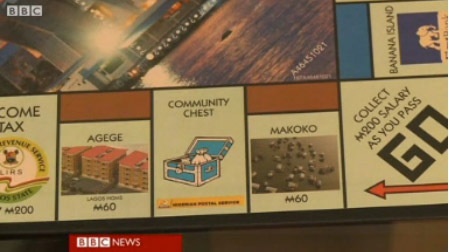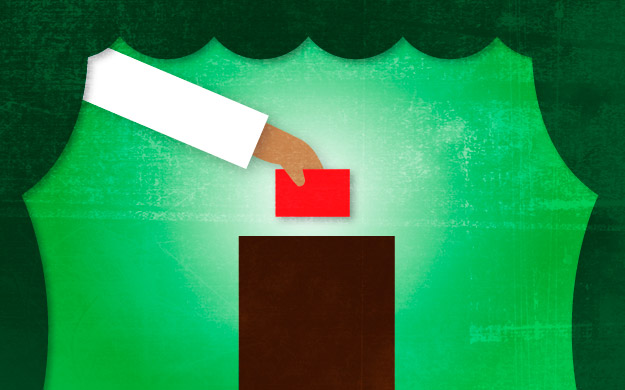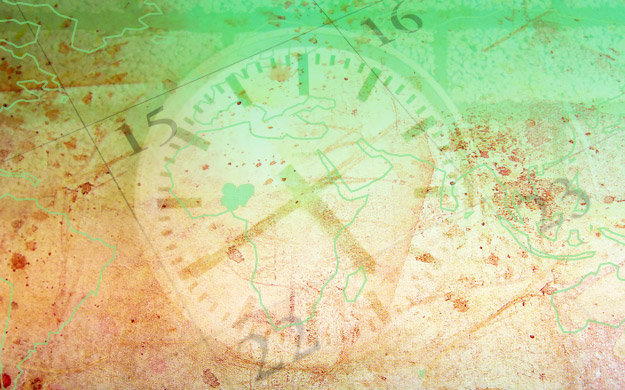
Nigeria: A New Dawn?
The April presidential election in Nigeria exposed the fragile union in the country and shows the efforts made over the years to make Nigeria one has not been so successful. This was evident from the voting patterns in the Northern and Southern parts of the country. There is no doubt that the electoral commission deserves commendation for conducting a successful election despite the initial embarrassing hiccups. A lot still needs to be done in establishing a more robust electoral framework and transforming the political culture in the country. As such I look forward to a time when Nigerians will cast their votes based on political ideologies and not on religious or ethnic sentiments.
I was impressed reading about the President’s declarations of his commitment to fight corruption. A remarkable statement attributed to him was;
“I will continue to fight for electricity to be available to all our citizens. I will continue to fight for an efficient and affordable public transport system for all our people. I will continue to fight for jobs to be created through productive partnerships.”
It will definitely be a welcomed development to have them materialise. However, I found the use of the word ‘fight’ by Mr. President quite intriguing. In my opinion it indicates he is well aware there are ‘forces’ or put mildly, barriers, that would have to be overcome before the average Nigerian can reap the fruits of true democracy in a country so blessed with abundant natural and human resources.
In every society, there are people who benefit in one way or the other from sabotaging the efforts of the state in maintaining law and order. There are those who make a living from defrauding and robbing defenseless citizens of their hard earned resources. No matter the rules and regulations in place to ensure those who breach peace and order are brought to book, the effectiveness and efficiency of the law enforcement agencies is crucial to having a secure society. Many have argued that high unemployment has contributed to the rise in criminal activities over time.
It’s common knowledge that many Nigerians do not feel safe in their homes and have lost confidence in the Nigerian Police tasked with the duty of protecting them. This problem has proved to be damaging to the perception of Nigeria in the international community as an unsafe place for economic activities.
With the reports of crime, lawlessness, assassinations and social disorder in Nigeria, I think it is time realistic and effective solutions are drawn up to drastically reduce these perils. The Nigeria Police has been seen by many as an ineffective and corrupt force. While there is no excuse for corrupt practices, I think it’s important to consider some reports that over the years
the working conditions of the men and women of the Police force hasn’t been great. Allegations of months of unpaid salaries, lack of adequate crime fighting equipment and supplies have not enabled these Police men and women to be the best they could be. There is no doubt that there is a high tendency for a police officer to indulge in corrupt practices when his or her salaries are not paid on time. Despite the challenges they face, there are still very efficient and dedicated officers in the Nigeria Police.
The lack of public confidence in the Police gave rise to the emergence and formation of vigilante groups across the country. There is an urgent need to address the security concerns in Nigeria and controlling police corruption will make it easier to deal with crime. It can be argued that police corruption is a reflection of the social malaise that the Nigerian society has been in.
The police force should be completely professionalised with a decent pay scale, reasonable incentives and better working conditions. I have my reservations about decetralising the police and having every state controlling its police force. However, I have seen how effective grass root policing can be looking at some neighborhoods in London. As such it might be useful to have local Police who are in touch with the local community and help eradicate crime at the grassroots. While the Federal Police will deal with state and national enforcement matters. The local Police could have local targets and criteria which meet the needs of the local communities. This would help in building strong and secure communities. However, one of the challenges of having a local Police is the possibility of them being used by incumbent political officers to ‘suppress’ their political opponents. In an ideal society, this shouldn’t happen.
The social and economic cost of high crime rate and an unsecured society is enormous. There is no doubt the government has a huge task in tackling this security dilemma.
“Happiness has many roots, but none more important than security”
Nigerians want to live in a safe and secure society where they can go about their businesses without the fear of crime. It is high time security and safety of lives and properties became an integral part of the political agenda of the Nigerian government.







I find it interesting, just few days after reading this, the Police heaquarters in Abuja is attacked. Isn’t it getting scarier as the Nigerian Police Force will now have to also fight suicide bombers?! I am getting worried for people living in Nigeria. If a bomb could go off at the police headquarters. Where could be seafe?
Victor, it is very hard to deal with terror attacks in any nation, even the west have their own fair share of terrorist bombs. What I do agree with you is the Nigerian Police in general is becoming irrelevant to security of the lives of Nigerians. Something has to be done otherwise whats left of our civility will be none existent in a few years.
Your story was really intarmofive, thanks!